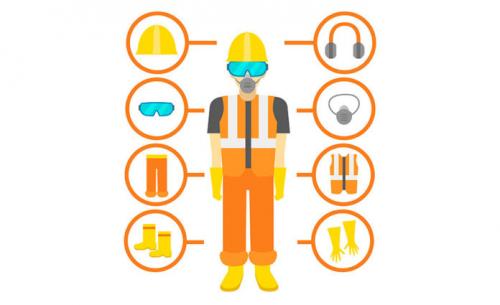Personal Protective Equipment: What Is It And How Does It Improve Workplace Safety


The most important
thing your workplace should possess is safety. Your job should make you feel
safe, and it should not put your overall well-being at risk. Certain jobs will
require you to equip safety clothing or gears to ensure your protection while
working. An employer should provide protective equipment, especially to the
industries that will comprise their health.
Likewise,
if you are a worker or a job hunter, it would be best to recognize the
industries you are working in. So, you can be aware of the possible risks of
your field and be better prepared. Read more to this article so you can better
understand personal protective equipment and determine which work fields will
need them.
What is Personal
Protective Equipment?
More easily known as
PPE, personal protective equipment
protects the user against possible health or safety risks at work. It minimizes
exposure to hazards and illnesses and avoids injuries from chemical,
radiological, electrical, mechanical, and other workplace dangers.
Every
industry has different levels of risk and will require different levels of
safety. PPE also varies from head to toe to ensure that your whole body is
protected. It usually includes safety helmets, high-visibility clothing,
earplugs, bodysuits, and safety shoes. Again, there are more types of
protective equipment that are appropriate for particular fields.
What Workfields Will
Require PPE?
Construction Industry
This industry
constantly exposes its workers to hazards, slips, and mishaps that may happen.
Moreover, it is for the fact that construction sites hold many potential
threats, and wearing PPE can be the workers’ primary protection gear. One must
wear them properly to protect them from possible injuries and minimize the
risks thoroughly.
Basic personal gear
for the construction industry would be protective headwear
as protection for falling objects, safety footwear to avoid punctures, face or
eye protection, and hearing gear. With a lot of things going on in construction
sites, your senses might have trouble sensing danger. PPE such as those
mentioned above can greatly reduce the chance of a person getting injured while
working.
Chemical Industry
Chemical plant
workers do their job, frequently exposed to possibly dangerous chemicals. Usual
risks are from fumes, gases, and vapors. These may spill or infiltrate the air
and can be an immediate risk to the workers’ health. The worst cases would be
burns, blisters, or death. So, everyone is required to wear one when entering
this work field.
As PPE varies in
industry, the equipment for the chemical industry will also depend on the type
of chemicals they handle. Still, the workers should wear them correctly all the
same. A sample type of PPE would be a chemical-resistant glove that should be
suitable in size and perfectly fit the worker.
Manufacturing Industry
The manufacturing
industry is one of the fields that require the heavy deployment of PPE. Since it
is a dynamic field, some workers constantly switch from hard hats to welding
helmets to safety goggles. Since this industry requires moving around, there
was a misconception that wearing protective gear can hinder the workers’
productivity.
Fortunately, this
issue has been resolved, and regulations have become more strict in employing
personal protective protocol to ensure worker safety. Moreover, workers are
less likely to wear equipment that can limit their movement. Even so, they have
standard protective gears that they wear that still minimize hazard exposure.
Healthcare Industry
With the COVID-19
pandemic, the demand for PPE in the healthcare industry has significantly
increased. PPE helps prevent the spread of the virus and any other hazard from
one person to another. In simple terms, the equipment serves as a barrier
between the healthcare worker and the infected patient.
The usual PPE in the
healthcare industry are protective gowns, masks, gloves, and more. Since the
equipment can be infected, especially when in contact with bodily fluids,
workers dispose of them right after using them. The disposable is also highly
protected not to spread germs,
bacteria, or viruses.
Oil And Gas Industry
Like any other field
in this list, the oil and gas industry also deals with a wide variety of
hazards in their daily tasks. There are frontline workers in this job industry,
and they are usually the ones that directly handle the oil and gas sector,
which is complete exposure to a huge quantity of deadly chemicals for a long
time. Additionally, there are other workers in the industry that are exposed to
these chemicals.
The
primary PPE of the oil and gas workers are clothing and gears resistant to fire
because the hazards they handle are highly flammable. Also, steel toe boots,
protective glasses, and hard hats are used for people assigned to oil rig
locations.
Takeaway
Every job can be
demanding to our well-being and especially to people who stay in their
workplace from day to night daily. That is why one must be mindful and careful
when working in various fields since hazards are primarily present in every
job. However, it does not mean you cannot prevent it.
Personal protective
equipment is a way for you to feel more secure and work more safely on your
tasks. Again, just because it can happen, does not mean it will happen to you
too. So, work safely and securely.
Post Your Ad Here
Comments